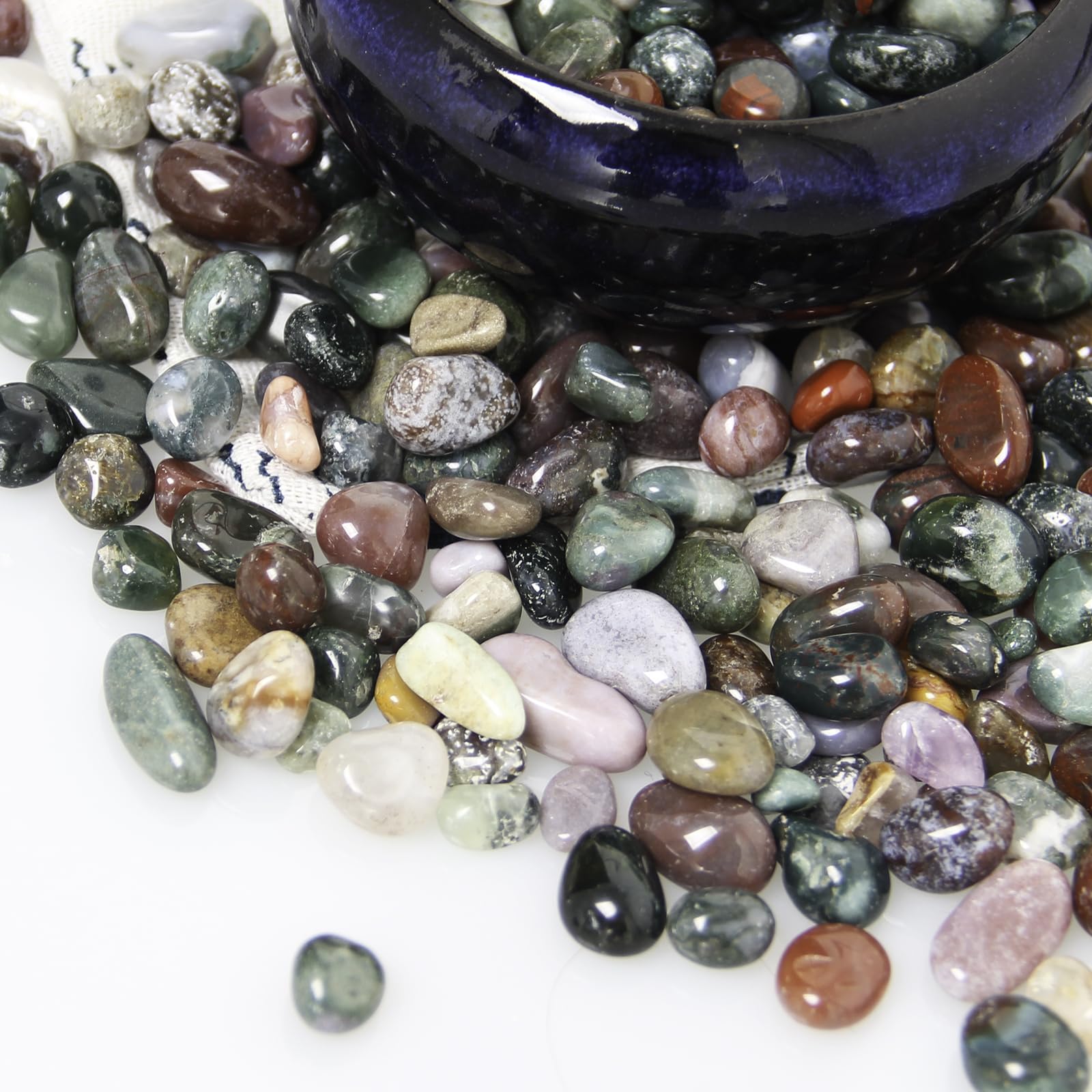
Cybele: Goddess of Nature, Love, and Fertility
Cybele, the Great Mother goddess, embodies nature's untamed spirit and fertility. Discover her history, symbols, and how to honor her with herbs and crystals.
If you've ever been interested in ancient traditions, you may be interested in Cybele, the Great Mother. Rooted deeply in history, she was a mighty deity associated with mountains, wild animals, and the untamed forces of nature. People who feel connected to this goddess often look to herbs and crystals for a way to enhance this connection by honoring her nurturing and protective spirit.
Just imagine being able to surround yourself with the earthy beauty of crystals and the natural fragrance of herbs to tap into Cybele's vibrant energy. These elements have a long history of deepening personal rituals and connections with the divine. By picking stones and plants that resonate with the Goddess, you can create a personal sanctuary that reflects her love and fertility.
Key Insights
- Cybele is a powerful representation of attachment with nature and all sorts of protective energies.
- Herbs and crystals have conventionally been used to align with her nurturing energy. These may be used in rituals to further personal growth and fertility.
Historical Significance of Cybele

Cybele in Anatolia and Phrygia
The origin of Cybele is found in Anatolia, modern-day Turkey, where she was worshipped as a powerful mother goddess. To the Phrygians, she was a deeply revered figure who represented the fertilizing powers of Earth. Her name, meaning "Mountain Mother," symbolizes nature in its purest, unconquerable form.
In Phrygia, Cybele's followers, especially the Galli priests, celebrated her in musical, dancing, and frenzied rites. These festivals were not just quiet moments of personal introspection but wild and ecstatic festivities in praise of life and nature.
Cybele's Integration into Greek and Roman Cultures

With time, the influence of Cybele permeated, and the Greeks and later the Romans adopted her into their worship. Her story did evolve to make it within their pantheon, but its essence remained very well. The Greeks identified her with their own mother goddesses, such as Gaia and Rhea, locating her among the most venerated figures. The Romans would take the worship of Cybele in a much more integral form to their festivals, specifically on April 4th, something that still continues in the present calendar system of humanity.
Roman followers would parade her statue through the streets, embedding her deeply into their society as the protector of the city, especially in times of war. It is a testament to her enduring significance, even as an Anatolian deity.
Symbols and Iconography

Depictions of Cybele
Cybele is very often depicted enthroned, full of kingly dignity. Her crown is an attribute that points toward her strong position, embodying in herself the spirit of Mother Earth, commanding respect and reverence.
Holy Animals and Nature Links
Lions often appear as her companions and attest to her fierce and protective nature. But Cybele is not all about strength; she is also deeply connected with nature. Her realm includes mountains, pine trees, and the land itself, making her the ultimate guardian of the wild.
Rituals and Worship

Festivals and Celebrations
The worship of Cybele will never be divorced from her grand festivals, such as the Hilaria, which celebrate the rebirth of Attis and the arrival of spring. Music, dancing, and joyous celebration characterize such festivals, and one would not want to miss joining such an occasion in honor of the vitality and life that Cybele represents.
The Role of Priests and Devotees
The worship of Cybele mainly revolved around the priests, especially the Galli, with their ecstatic dancing and music designed to lift the spiritual experience. Persons like yourself may try to relate to her through prayer, offerings, or acts of devotion that establish a personal connection with the goddess.
Ritual Practices and Sacrifices
While elaborate rituals are not necessary, simple acts performed with genuine intention can be powerful. Offering herbs like lavender or crystals that resonate with Cybele’s energy during prayer can help create a sacred space. Honor her by embodying the spirit of generosity and life, whether through donating to causes connected to the earth or sharing your time and resources.
Herbs and Crystals Associated with Cybele

Herbs and Their Purposes
Lavender is an herb often associated with Cybele, calming and protecting. Its soothing quality might be very helpful in creating an atmosphere of serenity for rituals or meditation performed in her name.
Crystals and Their Significance
When choosing crystals, you’re selecting fragments of the earth’s energy. Amber, fossilized tree resin, captures the life force of the earth, making it an ideal stone for connecting with Cybele’s vibrant energy. Obsidian, especially black obsidian, is known for its protective properties and grounding influence, creating a strong link to Cybele’s nurturing embrace. Red garnet, too, is associated with Cybele, amplifying her energies of vitality and fertility.
Cybele's Influence on Love and Fertility

Goddess of Fertility and Wild Nature
As the Mother of Gods, the goddess Cybele has given life to every part of the world, from the high trees to the smallest creature. She is found in all untaught places: forests, mountains, and everything that grows on them. It is there that her hand leads the cycle of life, renewal, and growth.
Even wild animals are her beloved children. Surrounded by the creatures of nature, you may feel her presence as a reminder of her guardianship as mother and of the instinctive harmonies between all living things.
Protectress of Women and Relationships
She was responsible for every level of love, from profound love relationships to light flirtations. Cybele guides through bonding, nurturing, or healing relationships. As a goddess, she protects and empowers women in their personal growth and their importance within the core of family and society. A protector of life, she oversees the growth of children and perpetuates the life cycle with her role in fertility.




 https://witchyhour.com
https://witchyhour.com